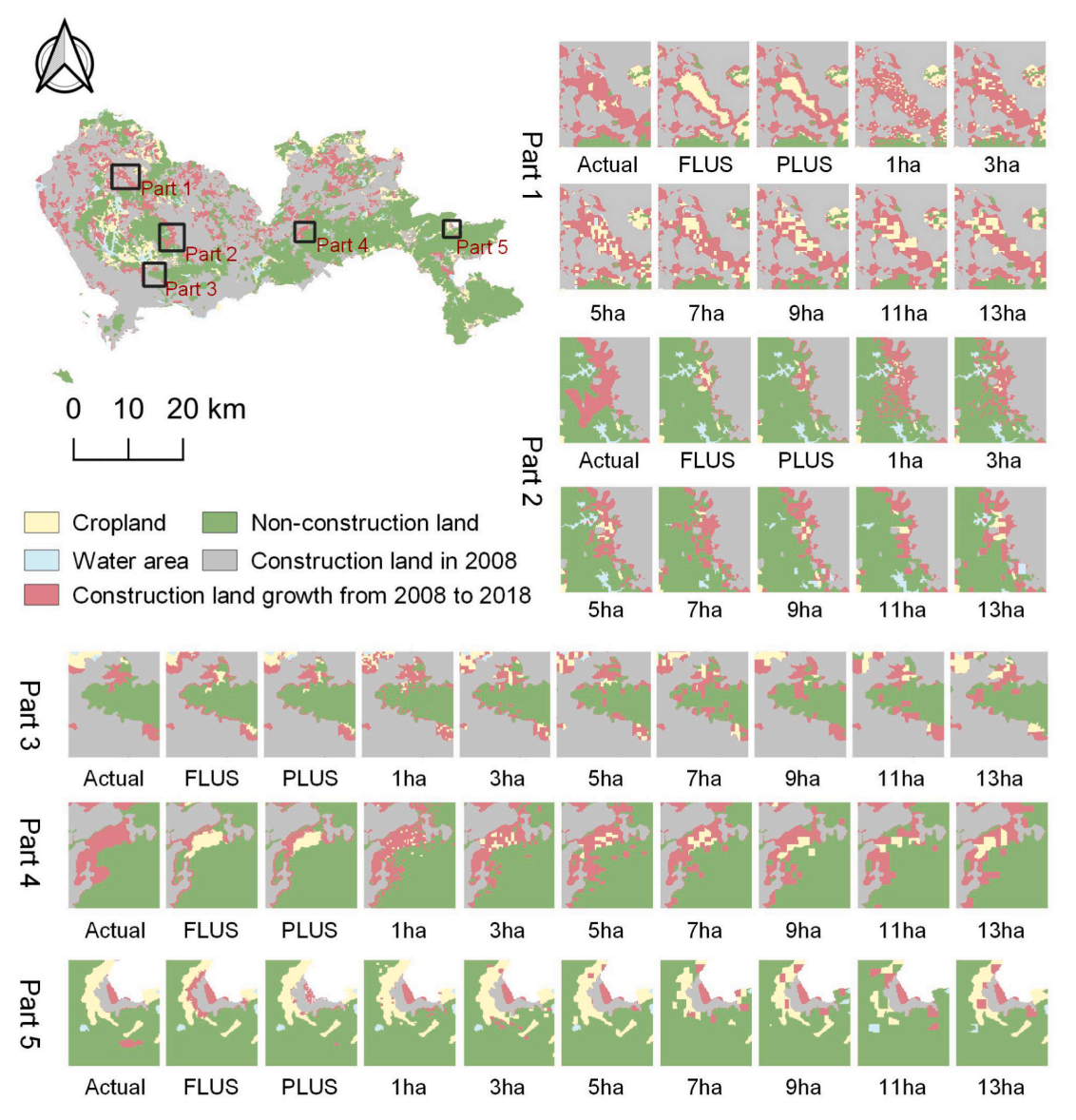Title:Applicability and sensitivity analysis of vector cellular automata model for land cover change

Abstract
Urbanization-induced land cover changes significantly impact ecological environments and socioeconomic growth. Vector-based cellular automata (VCA) models are an advanced cellular automata (CA) method that use irregular cells and perform well in simulating land use changes within urban areas. However, the applicability and parameter setting of VCA models for land cover change simulation are still challenging for researchers. To address this issue, this study applied a VCA model and two raster-based models, i.e., a pixel-based CA model and a patch-based CA model, to simulate and compare their performance in simulating land cover changes. The results show that VCA and patch-based CA were superior, with VCA's FoM being 39.74% higher than pixel-based CA and 11.00% over patch-based CA. VCA effectively tracks construction land expansion in rapidly developing areas, while patch-based CA excels in central urban and suburban shifts, fitting broader study scopes. Additionally, a spatial scale sensitivity analysis of the VCA model revealed that a smaller VCA cell size improves accuracy but introduces a risk of spatial pattern errors. Notably, the scope of study impacts VCA accuracy more than cell size. These findings bolster land cover change modeling theory and offer insights for precise future land cover change simulations and decision-making.
Highlights
- Comparison of CA models reveals VCA and PLUS's superiority in urban land cover simulation.
- VCA is ideal for rapid construction zones, while PLUS suits mature central areas and suburbs.
- Modifying cell size boosts VCA's precision but affects landscape pattern similarity.
- District variations influence VCA's accuracy more significantly than cell size adjustments.
Keywords
Land cover change;
Spatial scale sensitivity;
Cellular automata models;
Vector-based cellular automata;
Regional variations
Full Text Download
Computers, Environment and Urban Systems
Q.E.D.









